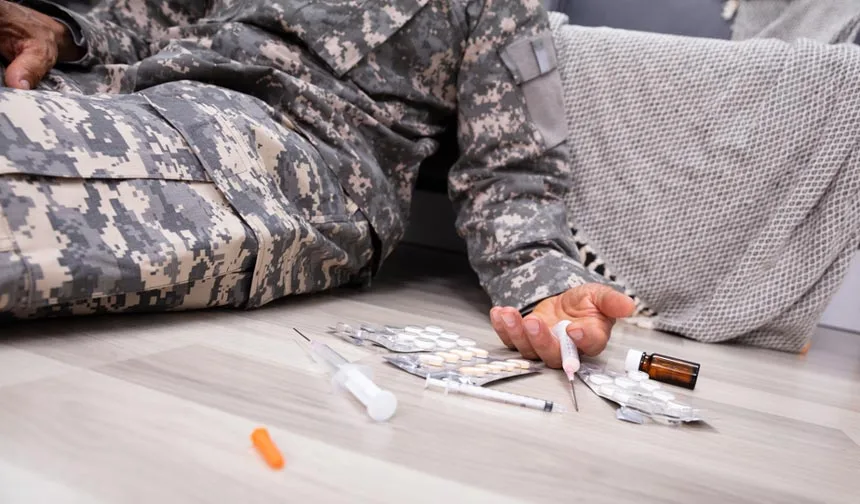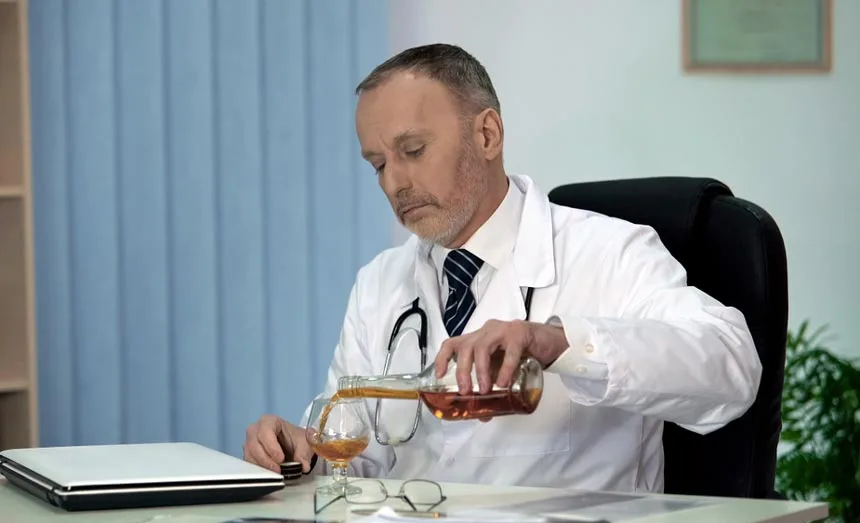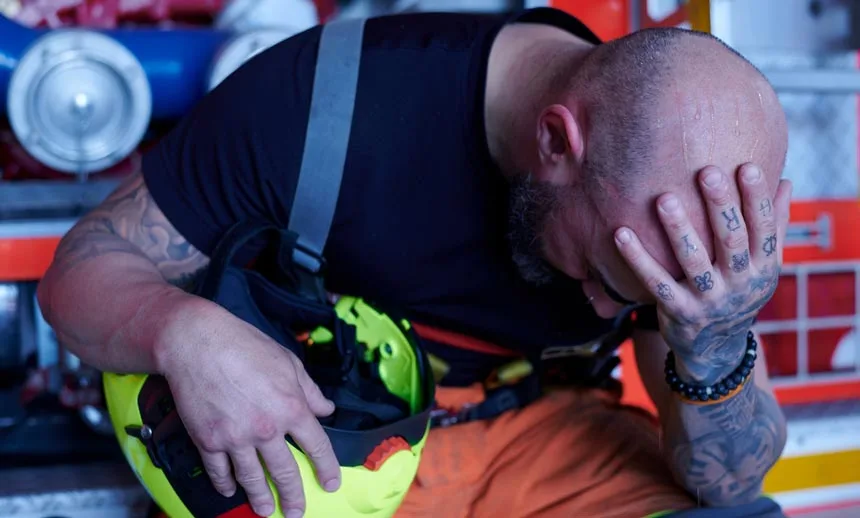What is a First Responders Rehab Program?
Table of Contents
- What is a First Responders Rehab Program?
- The Importance of First Responders-Focused Programs
- The Connection Between First Responders and Substance Abuse
- Common Mental Health Issues Amongst First Responders
- The First Responder Addiction Treatment Process
- FAQs On First Responders Rehab
- Find First Responders Rehab Programs Today!
- Medically Reviewed By
First responders rehab programs are treatment programs specifically designed to provide addiction and mental health treatment for law enforcement officers, paramedics, EMTs, and other first responders.
These programs are designed to address the unique issues faced by those who work in these professions and help them to develop the skills needed to cope with the stress and trauma associated with their work.
Keep reading to learn more about what forms and effective rehab for first responders, and how to locate programs nationwide if you or a loved one are struggling.
The Importance of First Responders-Focused Programs
First responders’ rehab programs are of vital importance to those working in these fields, as they recognize the necessity of providing a safe and supportive environment for individuals to discuss their experiences and receive help with managing the psychological and physical effects of their job.
In these programs, first responders work with therapists and addiction specialists to discuss the underlying causes of their substance abuse habits and develop strategies for managing stress, improving communication, and rebuilding trust.
Overall, rehab programs designed to specifically address the needs of first responders are crucial for helping these individuals learn how to lead happier, healthier lives while continuing to serve their communities.
The Connection Between First Responders and Substance Abuse
Any first responder can attest that their line of work can be incredibly high-stress, and may often entail enduring emotionally and physically harrowing circumstances. Unfortunately, being constantly exposed to intense or potentially dangerous situations can be significantly detrimental to a person’s physical and mental health.
The Substance Abuse and Mental Health Services Administration (SAMHSA) finds that first responders are at a significantly higher risk to abuse alcohol and drugs as a means of coping with the emotional distress caused by their jobs. Those considered most at-risk are those who have:
- Experienced a life-threatening situation.
- Been separated from their loved ones for an extended period of time.
- Been deployed or otherwise faced disruptions in their home or work life.
- Suffered trauma due to exposure to their own or someone else’s circumstances.
Many people who work in these fields will develop behavioral health issues at some point in their careers. Whether this is mental health conditions, substance abuse issues, or even co-occurring disorders, getting the proper treatment to help them overcome these problems will be necessary to continue leading healthy, productive lifestyles.
Substance Abuse and Police Officers
Police officers must often deal with extreme amounts of stress and pressure on a regular, if not daily, basis. They often must put themselves at great risk in order to protect and serve the general population, and may regularly witness disturbing events in their line of work.
A person working in this field may find themselves much more prone to drug or alcohol abuse, as a means of coping with the difficult conditions they must work in. They also have greater access to illicit substances when arresting drug dealers or responding to calls related to drug abuse.
Studies have found that police officers have an estimated 20-30% likelihood of developing substance use disorders compared to the rest of the population, which falls around 10%. While those working in law enforcement have been found to abuse both drugs and alcohol, binge drinking and other problems with alcohol use are considered more common within this field.
Substance Abuse and Firefighters
Like many of their fellow first responders, firefighters spend their days working long hours and fighting dangerous fires in order to serve their communities and save civilian lives. With such an important job, comes a great physical and mental toll.
While not necessarily fighting crime, firefighters still find themselves facing dangerous situations which may not always have happy outcomes. Along with the risk of various job-related injuries and health complications being a firefighter entails, so too must these individuals face the potential of experiencing traumatic events and situations.
Unfortunately, many firefighters will develop a mental illness at some point in their careers. The most common of which include post-traumatic stress disorder (PTSD), anxiety disorders, and depression. This, along with the chronic pain caused by work-related injuries, can lead them to develop a drug or alcohol addiction as they use these substances to cope.
Studies have found that problematic alcohol use is particularly prevalent amongst men working in this first response field, and is usually found alongside severe depression and other mental health disorders.
Substance Abuse and Emergency Medical Services Personnel
Emergency medical technicians (EMTs) and paramedics provide medical care in emergency situations. They are the first to respond to 911 calls and assess patients – usually those who are in a critical state – at the scene, providing stabilizing support.
EMTs suffer many challenges, including long hours and emotionally distressing situations in which they may be unable to help a patient. After experiencing a traumatic event like those so frequently faced in this field, many people may turn to unhealthy coping mechanisms.
While the exact rate of substance abuse amongst EMTs and EMS personnel is difficult to measure, as many cases go unreported, research has indicated that these rates are similar to those found amongst the general population.
The most commonly abused substances amongst EMTs include alcohol and opioids, likely due to the social acceptability of the first, and the ease of access when working in the medical field for the latter.
Substance Abuse and Military Personnel
Substance abuse among military personnel is a significant and growing problem. In fact, studies have found that the rates of substance abuse in the military are higher than in the general population, even with the health coverage for substance abuse provided by TRICARE for the armed services.
This is a significant cause for concern, as substance abuse can be extremely detrimental not just for those working in this field, but their families and those they serve as well. Currently, the most commonly abused substances in the military are tobacco and alcohol, followed by marijuana and prescription drugs.
Those working in this field may be more likely to abuse drugs and alcohol due to the high levels of stress, anxiety, and depression that are common in the military.
Frequent deployment and long work hours can all work to create a conducive environment for substance abuse, as well. Unfortunately, the consequences of substance abuse and addiction in the military can be severe.
Recognizing their substance use issues will be crucial for the ability of military personnel to get the help they need in order to re-establish a healthy and productive lifestyle.
Common Mental Health Issues Amongst First Responders
First responders play vital roles in our society, often putting their lives on the line every day to keep their communities safe and secure. Unfortunately, the physical and emotional stress of their jobs can take a significant toll on their mental health.
Common mental illness symptoms and conditions among first responders include depression, anxiety, PTSD, addiction, and suicide. There are a number of factors that contribute to these substance abuse and mental health issues among first responders, including:
- Long working hours
- Heavy work duties
- Exposure to dangerous and traumatic situations
- Feelings of isolation
- Lack of emotional support
The stigma surrounding addiction and mental health can prevent many first responders from seeking the help they need. Fortunately, there are many recovery programs available that are specifically tailored to the needs of first responders that can help them get their lives back on track privately and successfully.
The First Responder Addiction Treatment Process
While the physical and psychological tolls of their jobs can be devastating, first responders can find hope and healing through addiction treatment programs designed to specifically meet their recovery needs.
There are several rehab programs that provide specialized addiction treatment for first responders. These organizations recognize the unique needs of first responders and provide specialized resources and treatment options.
Programs may include individual and group counseling, inpatient and outpatient treatment, and follow-up care. First responders may also benefit from group therapy sessions and support groups specifically designed for them. These groups provide an opportunity to talk openly about their experiences and gain support from individuals who come from similar backgrounds.
In addition, some organizations offer services such as peer support, mentorship, and educational opportunities to help first responders deal with the unique stressors of their job. Addiction treatment for first responders is an essential part of their recovery.
Treatment can help first responders address the root causes of their addiction and provide them with the tools and support they need to stay sober. With the right resources and support, first responders can find hope in healing from their addiction and reclaim their lives.
Inpatient and Outpatient Rehab for First Responders
For those struggling with a substance disorder, they will likely find themselves having to choose between an inpatient or outpatient addiction treatment program. For those with a more severe substance use disorder or co-occurring mental health condition, inpatient treatment would be their best option.
Inpatient programs can offer more specialized treatment that addresses both their surface-level addiction, as well as any underlying issues that may be contributing to their substance abuse habits. This may include evidence-based clinical and therapeutic interventions for their addictive habits, as well as various other recovery services.
Outpatient treatment, on the other hand, can offer more flexible care and may be better suited to those with less severe addictive habits. These can provide treatment on a scheduled basis, rather than a 24/7 basis.
Outpatient care can meet the treatment needs of those with busy schedules or otherwise unavoidable responsibilities. Receiving treatment on an outpatient basis can help first responders maintain their careers while still getting the help they need.
Behavioral Therapies for First Responders
First responder mental health treatment services come in several different forms. This may entail participation in standard services such as individual, group, and family therapy, or branching out to more specialized behavioral therapies like:
- Dialectical Behavioral Therapy (DBT)
- Cognitive Behavioral Therapy (CBT)
- Eye Movement Desensitization Response Therapy (EMDR)
- Motivational Interviewing
These are just a few examples of the types of therapies that have proven effective for helping first responders achieve lasting recovery from their substance abuse and/or mental health disorder.
No matter what your treatment needs are, the Find Addiction Rehabs team can help you find treatment programs nationwide that can help you get your life back on track, today!
FAQs On First Responders Rehab
Can I Be Fired for Going to Rehab?
The answer to this question is complicated and depends on a variety of factors. Generally, employers cannot fire someone solely for going to rehab. The Americans With Disabilities Act (ADA) provides protection against discrimination based on a disability, which includes addiction.
Thus, employers cannot legally fire someone for seeking treatment for their disability. However, there are certain circumstances that may allow an employer to terminate their employee for drug or alcohol-related issues.
If the employee’s substance abuse is impacting their work performance and causing them to miss or show up late to work on a regular basis, this can be grounds for termination. Furthermore, if their employee is engaging in behaviors that are disruptive or harmful to their co-workers or work environment, this may also be a terminable offense.
With that being said, employers are legally obligated to provide their employees with reasonable accommodations to address their disability, including time off to seek treatment for their substance abuse or to work remotely while they figure out how to manage these habits.
Does Insurance Cover Rehab for First Responders?
When seeking treatment for substance abuse and mental health problems, health insurance can play a huge role in helping first responders get the recovery support they need. Many insurance providers will offer coverage for rehab and treatment for first responders.
When it comes to finding the right plan for a first responder, it is important to do your research. Many insurance plans have specific requirements for coverage, such as pre-authorization, co-pays, and deductibles.
Additionally, insurance plans may only cover certain types of treatment, such as inpatient or outpatient services. It is important to understand these requirements and compare plans to find the one that best fits the needs of the first responder.
If you are looking for a first responder rehab program and want to know if insurance will cover your treatment process, reach out for a complimentary consultation with our team and get answers, often within minutes!
Find First Responders Rehab Programs Today!
If you or a loved one is a first responder struggling with addiction, know that you are not alone and help is available. The Find Addiction Rehabs team is available 24/7 to find rehab programs that can meet all of your recovery needs, nationwide.
Call anytime, and we will help walk you through finding the right program for your needs and help you take the first steps to become healthy and successfully sober!
Bryan was born in Philadelphia and remains an ardent supporter of Philadelphia sports. After attending FSU and FAU where he majored in writing, Bryan ventured out to follow in the footsteps of his idols, running straight into drug addiction. After being arrested by the President’s Secret Service, Bryan finally started to rebuild his life and beat that monkey off of his back through writing, playing music, and studying Buddhist philosophy.
Despite still having the occasional struggles with mental health, Bryan strives to be a little bit better a person each day. With the support and love from a loyal family, and kind-hearted and generous friends, Bryan tries to help people vanquish their own personal demons as he did and bring more love and beauty into a pessimistic world.






